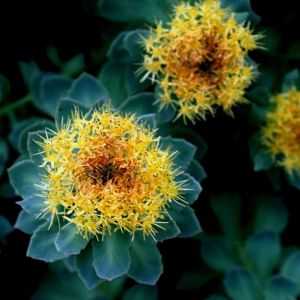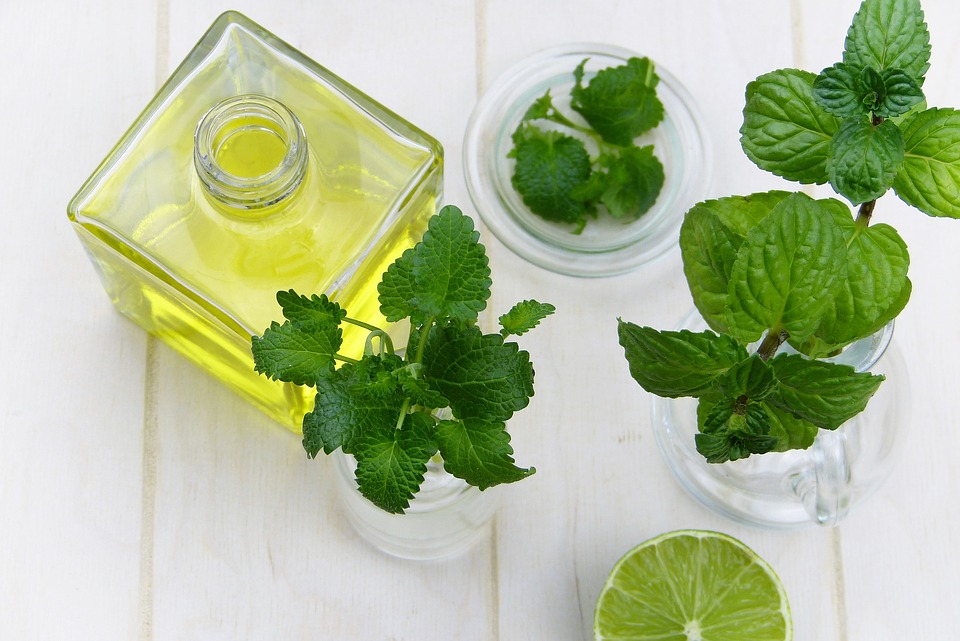Do Supplements Work for Anxiety and Stress?
Written by: Glen Greenberg, Clinically Verified by: Matt Marshall, PharmD.
If you’re already stressed about the rigors of life, the last thing you probably want to do is search through countless databases for solutions for your untamed worries.
Luckily, we’ve put together a quick and helpful guide identifying the best supplements for that extra worry in your life.
We took an in-depth look at the most effective natural supplements for a variety of nerve-wracking scenarios. There are plenty of herbs to decrease stress/anxiety out there, each with its own unique mechanism of action to help you cast away your cares.
Take a quick look at the graphic below as we cover each option in detail. If you find it useful, feel free to save it and share it around!

Ashwagandha
Ashwagandha has been used as a calming tonic for more than a thousand years in Indian Ayurvedic medicine.
On a more modern tone, scientists have verified its anxiety-fighting effectiveness in multiple studies. One of which – presented in the National Library of Medicine – showed that after 60 days, the group treated with the root extract displayed substantially reduced blood levels of cortisol, a stress-inducing hormone critical in the fight-or-flight response.
Ashwagandha, much like other supplements on this list, is an adaptogen, meaning that it dynamically adapts to stressful situations, increasing or reducing cortisol levels based on your immediate needs.
Dosage: It is best to take 300-500 mg orally, three times daily with meals. Expect results quickly, with effects continuing up to two months with daily usage.
Who would benefit most from Ashwagandha? Anyone who suffers from poor stress management or anxiety can benefit from this supplement.
Ashwagandha is compatible with other treatments for those suffering from general anxiety disorder. It also acts as a mood enhancer for more mild cases of the blues.
Side Effects: Some individuals in the study mentioned above reported mild stomach pains, but those participants claimed the digestive discomfort was negligible when compared to Ashwagandha’s positive impact on their mental health.
Contraindications: Ashwagandha should not be taken for two weeks before surgery or by people suffering from thyroid conditions. Immunosuppressant and sedative medications may also have a negative interaction.

Ginseng
Panax Ginseng is an herbal supplement that has long been used to treat stress and anxiety in parts of China, Siberia and Korea.
Traditionally brewed as a tea, it has also been shown to improve cognitive performance and memory as well as supporting mental health. Let’s see your iced macchiato do all that!
Ginseng contains ginsenoside, a compound that has yielded positive health results in a number of studies. Ginsenosides are as varied as people’s opinions, with each one serving a biological purpose in the human body. The specific ginsenosides in panax ginseng are known to aid in stress management.
Ginseng is another adaptogen, but where Ashwagandha possesses sedative and calming effects, Panax Ginseng fights fatigue, boosts energy and can act as a replacement for caffeine.
Dosage: Take 200-400 mg by mouth twice daily for up to twelve weeks.
Who would benefit most from Panax Ginseng? Those who frequently experience long periods of stress, are chronically under stress, are chronically fatigued, or any combination of the above. Desk jockeys, trade in that coffee for this helpful, energizing tea.
Side Effects: This herb can potentially cause headaches, insomnia, digestive issues, rashes and allergic reaction.
Contraindications: MAOIs should not be taken with ginseng. Do not combine with aspirin, warfarin, or other blood thinners. Those with high blood pressure, diabetes, or heart medication should not take it. Pregnant/nursing mothers and children should also avoid use.

Rhodiola Rosea
Rhodiola rosea is another adaptogen found in the colder regions of Europe, Russia, and Asia.
Several hundred studies have been conducted into the link between rhodiola and stress reduction, many of which have found it to be effective while also boosting energy and easing fatigue.
Dosage: 300 mg taken once daily is recommended as a quick fix for acute stress and anxiety. This dose can be increased to 600 mg once daily as tolerated and as necessary for desired effects.
Who Should Take Rhodiola Rosea? Those looking to reduce stress and improve focus in the short term will benefit the most (I’m looking at you, students.) In addition, Rhodiola has been shown to be effective for reducing symptoms of burnout syndrome. (I’m looking at you, graduates with student debt.)
Side Effects: May cause dizziness, dry mouth, or excessive salivation.
Contraindications: None are currently known, however, avoid if pregnant, lactating, or breastfeeding. Do not take if you suffer from low blood pressure, autoimmune diseases, or diabetes as it can aggravate these conditions.
Kava
Kava comes from the Pacific islands piper methysticum plant and is traditionally served as a beverage. It has a similar effect as alcohol, including body relaxation and stress reduction (but without the hangover.)
Kava contains kava-lactones and has been shown to be an incredibly effective treatment for stress. In fact, kava is so effective in bolstering mental health that it is considered a safe and effective treatment for anxiety by Psychology Today.
Unfortunately, it has not impressed the culinary community with its signature “muddy water” taste and texture.
There have been a myriad of studies into the use of kava for generalized anxiety disorder. It has proven to be a Level 1 treatment for the condition and offers significant improvement to its imbibers.
Kava has exploded in popularity in the past decade or so, with kava bars popping up all across the U.S., especially in Florida, California and New York. A kava-centric culture has developed with it, rivaling traditional bars and providing those suffering from stress to unwind and socialize without alcohol.
Dosage: A maximum daily dose of 250 mg is suggested, though up to 800 mg daily may be used for very short periods.
Kava bars usually serve the brew in special cups called shells to mimic the traditional drink-ware of the Polynesians that developed the drink. Each shell can contain between 150-550 mg of kava depending on the strain and individual bar.
Do not use kava indefinitely as prolonged use can cause liver damage.
Of note – Kava has a reverse tolerance effect; the more that you drink, the less you need in the future to feel the same effects.
Who would benefit most from Kava? It is best used as an herbal supplement for stress management in the short term. Think of it as an alternative to alcohol. (AA meetings at kava bars, anyone?) Repeated use exposes you to potential hepatotoxicity (liver toxicity) and should be taken with caution.
Side Effects: Skin reactions, dizziness, drowsiness, upset stomach, headaches, and acute hepatitis have all been reported. Liver damage through overdose and prolonged use remains the most pronounced risk.
Contraindications: Do not use on children or if you have liver disease, renal disease, Parkinson’s disease, blood disease, or depression. Avoid alcohol, barbiturates, Alprazolam, and Levodopa. Pregnant and lactating women should not use Kava.
Lavender
Lavender is a purple-flowering herb that grows all over America, East Africa, and Europe. It has long been used as a treatment for stress and sleep.
Studies have shown it to be an anxiolytic agent (basically a stress reducer) that was more effective than some prescription medications.
These agents promote the release of neurotransmitters that encourage peace and calming.
Dosage: Lavender in essential oil form can be used as aromatherapy or it can be taken in an oral capsule.
For aromatherapy, place the oil in a diffuser in the desired room and it will emit a soothing mist.
Alternatively, you can put a few drops of lavender oil on your pillow at night to breathe in its therapeutic benefits. If you wish to take lavender by mouth, start with 80 mg an hour before bedtime and increase to 160 mg after a couple weeks.
Who would benefit most from Lavender? Taken orally, Lavender is an excellent option for relaxing the mind of busy thoughts before sleep. Those who want a non-invasive, enjoyable way to manage long or short-term stress can benefit from Lavender aromatherapy throughout the day
Lavender aromatherapy is also great in calming down anxious or rowdy children. (More to the benefit of the parents, really.)
Side Effects: Drowsiness and dizziness are possible, with a small population reporting minor headaches.
Contraindications: Do not take lavender if you are already using any sedative medications. Do not use lavender and drive or operate heavy machinery. Chloral Hydrate is to be avoided. Oral capsules should be avoided in children or pregnant/breastfeeding women. Aromatherapy is safe for both parties.

Lemon Balm
Lemon balm is a perennial herb that was used by the ancient Greeks for a variety of health conditions. Studies have shown that foods containing lemon balm have a positive impact on the treatment of stress.
While it is unknown why lemon balm has a calming effect on anxiety, it is believed that it affects the GABAergic system. (Aka, the system that controls fight-or-flight.)
Dosage: Take 300 mg by mouth twice daily. Lemon balm may be brewed into a calming nighttime tea to soothe restless sleepers.
Who would benefit most from lemon balm? Those who suffer from nighttime anxiety or general restlessness at bed time get the most from lemon balm’s soothing effects.
Side Effects: While not much is known about long term use, loss of appetite, nausea, vomiting, dizziness, wheezing, and abdominal pain have all been reported.
Contraindications: Cannot be used by women who are pregnant or breastfeeding. Do not use when preparing for surgery (two weeks beforehand) or if you have diabetes or thyroid disease.
L-Theanine
L-theanine is an amino acid found in black teas. It has been shown to have several health benefits, such as reducing stress, increasing energy and promoting focus.
This supplement works by imitating the structure of glutamate, a naturally occurring amino acid that helps the transmission of nerve impulses to the brain.
Interestingly, studies have shown that it reduces emotional stress in cats as well as humans.
L-theanine is unique in that it encourages relaxation without causing sleepiness. In fact, it is useful for improving energy levels and focus in those who are chronically stressed and suffering from burnout.
Dosage: 100-200 mg once a day orally is the recommended dosage. Drinking black tea can also provide you with a substantial amount of L-theanine, just be aware most black teas are also have a bunch of caffeine.
Who would benefit most from L-theanine? Those who want to reduce anxiety or stress levels while keeping the mind sharp. It’s commonly used alongside caffeine to help offset jitters or over excitation, making it a great choice for students, athletes and gamers. (Teachers, coaches and neglected significant others can also benefit when dealing with the aforementioned groups.)
Side Effects: It may lower blood pressure and cause headaches. In rare cases, it may cause sleepiness. Pregnant women and those with low blood pressure should avoid its use.
Contraindications: Don’t use L-theanine if you have high blood pressure, take medications, or stimulant drugs. Caffeine will intensify the effects of this supplement.
SAMe
SAMe is a naturally occurring organic molecule that helps the body form, activate, and break down other chemicals. Supplementation of SAMe is useful to help correct deficiencies and is most effective in supporting liver health as well as easing symptoms of depression and osteoarthritis.
While not well studied for stress or anxiety, SAMe has been shown to help eliminate a variety of symptoms associated with depression. A significant benefit of SAMe is that it has shown to improve the effectiveness of prescription medications taken for stress and anxiety.
These sorts of interaction between several treatments for a disease almost always provide better results than any one supplement or medicine working on its own.
Dosage: It is recommended that you take 800-1600 mg daily, broken down into intervals between each dose. This treatment should continue for 4-12 weeks until desired results are reached.
Who would benefit most from SAMe: This supplement has been shown to help with depression more than anxiety, but, seeing as how both disorders are highly comorbid (occurring at the same time) SAMe could kill two disorders with one supplement.
Those who are already prescribed anxiolytics would benefit even further, as SAMe boosts the effectiveness of this drug. Teamwork makes the dream work, but don’t forget to consult your doctor first!
Side Effects: Not to be taken while pregnant or breastfeeding, if you have bipolar disorder, Lesch-Nyhan Syndrome, two weeks before surgery, or if you have Parkinson’s disease. It may cause anxiety, gas, vomiting, dizziness, sweating, or nervousness.
Contraindications: Not to be taken with Levodopa, Dextromethorphan, Meperidine, Pentazocine or Tramadol.

St. John’s Wort
St. John’s Wort is recognized in several studies as an effective way to relieve depressive symptoms, many of which are comorbid with anxiety.
The way St. John’s wort works is that it blocks some neurotransmitters, like serotonin and GABA, from reentering receptor.
For some cases of anxiety, this could reduce the feelings of stress and panic. For others, though, it could exacerbate the problem and lead to some pretty nasty side effects. Consult your doctor and/or psychological professional before taking St. John’s wort. They will know for certain if it could help or hurt.
Dosage: Start with 300 mg taken orally up to three times per day.
Who would benefit most from St. John’s Wort? Those with depression and certain anxiety-related disorders. Menopausal women with depressive symptoms may also benefit. It shouldn’t be taken longer than 12 weeks
Side Effects: Vivid dreams, difficulty sitting still, nervousness, irritability, dry mouth, dizziness, diarrhea, stomach ache, rashes, and tingling are all reported side effects.
Contraindications: Do not take when breastfeeding or pregnant, if you have Alzheimer’s disease, if you are under anesthesia, have ADHD, major depression, infertility, or are likely to get surgery in two weeks.
Each of these supplements can surely help you cope with stress and anxiety but, remember, regular exercise, an active social life and a healthy diet can do just as much as any drug or supplement. But, if you need that extra kick to push through that project you’ve been putting off or to take the edge away from those red numbers in your bank account, these supplements could do the trick!
(And, no, I don’t mean beating your boss with a hunk of ginseng.)
To help save you some time, we’ve researched the best brands on the market for the supplements discussed above. Below you will find the links to each product – feel free to check them out and compare with your own research! We receive a small kickback (about 5%) from Amazon, not the brand, which means that we can not only continue to produce high quality content, but keep our recommendations 100% free of bias as well.
Resources:
https://www.ncbi.nlm.nih.gov/pubmed/23439798
https://www.webmd.com/vitamins/ai/ingredientmono-838/lavender
https://www.ncbi.nlm.nih.gov/pubmed/19718255
https://www.webmd.com/vitamins/ai/ingredientmono-872/kava
https://www.drugs.com/npp/kava.html
https://www.ncbi.nlm.nih.gov/pubmed/21407960
https://ncbi.nlm.nih.gov/pubmed/24330893
https://tacticalvitality.com/wp-content/uploads/JANA-Vol-11-1.pdf
https://www.ncbi.nlm.nih.gov/pubmed/30854916
http://www.ncbi.nlm.nih.gov/pubmed/20384107
https://www.ncbi.nlm.nih.govpubmed//21170695
http://www.ncbi.nlm.nih.gov/pubmed/19962288
http://www.ncbi.nlm.nih.gov/pubmed/19962288
http://www.ncbi.nlm.nih.gov/pubmed/20512042
http://www.ncbi.nlm.nih.gov/pubmed/19258850
`https://www.ncbi.nlm.nih.gov/pubmed/12888775
https://www.ncbi.nlm.nih.gov/pubmed/22207903
https://www.ncbi.nlm.nih.gov/pubmed/16046102
https://www.ncbi.nlm.nih.gov/pubmed/1925418
https://www.ncbi.nlm.nih.gov/pubmed/24856557
https://www.ncbi.nlm.nih.gov/pubmed/20595412
https://www.ncbi.nlm.nih.gov/pubmed/11104210
https://www.ncbi.nlm.nih.gov/pubmed/3318442
https://www.ncbi.nlm.nih.gov/pubmed/21911258
https://www.ncbi.nlm.nih.gov/pubmed/19075619
https://www.ncbi.nlm.nih.gov/pubmed/22606944
https://www.ncbi.nlm.nih.gov/pubmed/10454515










